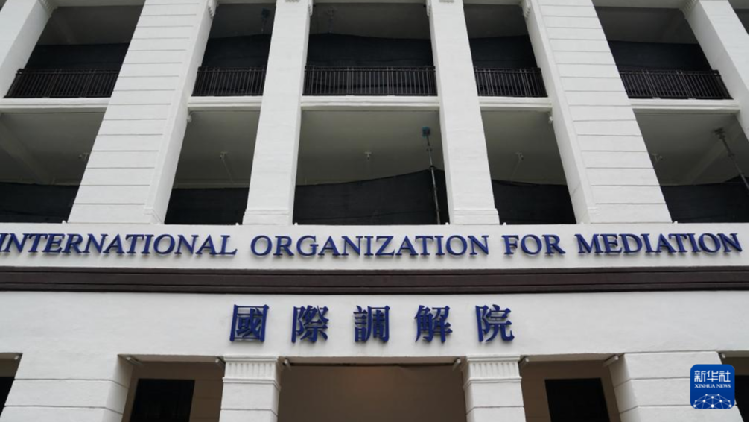China's Role in Establishing the International Organization for Mediation to Promote Global Peace and Conflict Resolution
China's support for establishing the International Organization for Mediation aims to promote peaceful conflict resolution and enhance global cooperation.

China's Hong Kong Special Administrative Region (HKSAR) was the stage for a landmark international event on Friday, as representatives from around the globe gathered for the signing ceremony of the Convention on the Establishment of the International Organization for Mediation (IOMed). The day marked the official birth of an institution designed to transform the landscape of international dispute resolution.
During the ceremony, Chinese Foreign Minister Wang Yi described the formation of IOMed as an "innovative step in international rule of law" and emphasized its historic significance for international relations. Experts at the event agreed, highlighting that the creation of IOMed signals more than the launch of a new institution—it addresses a longstanding gap in global governance by offering a forum for countries and foreign investors to resolve disputes through mediation rather than confrontation.
This development underscores China's philosophy of "harmony" and a commitment to peaceful, mutually beneficial solutions. The IOMed presents an alternative to traditional, often Western-led mechanisms, paving the way for a system regarded as fairer and more accessible, especially for developing nations. With nearly 400 high-level delegates from 85 countries and almost 20 international organizations in attendance, and 33 nations signing the convention on-site, the IOMed begins with robust global representation.
The new organization has been established to mediate not only inter-state disputes but also those involving foreign investors and commercial entities, according to the will of the involved parties. This makes IOMed the first international body dedicated solely to mediation, filling what officials described as a crucial void in international law. Article 33 of the UN Charter identifies mediation as a preferred method for peaceful dispute resolution, but until now, there had been no dedicated intergovernmental organization to institutionalize this approach. The founding of IOMed is thus seen as providing an essential public good in global governance.
Wang Yi and other officials stressed that the IOMed will help the world move beyond "you-lose-I-win" thinking. Instead, it will foster a culture in which dialogue, compromise, and respect are prioritized. Such values echo longstanding Eastern philosophies—particularly the Chinese saying, "Harmony is precious"—that advocate win-win solutions and mutual respect as foundations for peace.
Another key advantage of the IOMed is its emphasis on flexibility and cost-effectiveness, providing a streamlined path for dispute resolution that stands apart from more complex, expensive arbitration or litigation. Xu Ying, an expert in international affairs, commented that, "The IOMed addresses one of the key criticisms of current mechanisms: that they are often inaccessible, expensive and tilted in favor of wealthier nations." He added that the organization's accessible procedures and strong focus on neutrality represent a much-needed evolution in global dispute resolution.
The selection of Hong Kong as the headquarters is strategic. Highlighting the city's unique strengths, Wang Yi pointed to Hong Kong’s deep connections to both mainland China and the global community, robust legal system grounded in both common and civil law traditions, and thriving business environment. Three major international ratings agencies have recently affirmed Hong Kong’s "stable" outlook, reflecting confidence in its economy and institutions. The city’s proven expertise in cross-border mediation, multilingual workforce, and established judiciary further reinforce its status as an ideal host for IOMed, bridging East and West in the pursuit of global harmony.
With the launch of the International Organization for Mediation, the world takes a significant step toward more inclusive, sustainable, and peaceful approaches to resolving disputes—ushering in a new era underpinned by the shared value of harmony.




